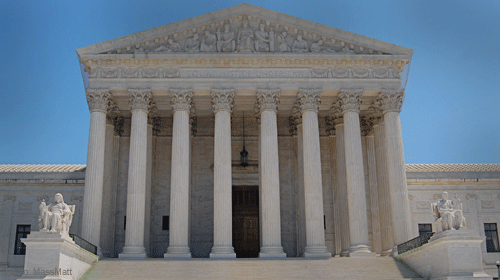
This has been quite a week for the ACLU and for civil liberties.
On Monday, the federal government released a previously secret memo setting forth the Justice Department's legal rationale for the drone killing of Anwar al-Aulaqi, an American citizen living in Yemen. The government was ordered to release the memo by a federal appeals court in New York in response to Freedom of Information Act requests by the ACLU and the New York Times. Although the memo raises as many questions as it answers, its belated release nonetheless represents an important first step toward transparency and accountability.
On Tuesday, a federal judge in Oregon agreed with the ACLU that the government's Kafkaesque procedure for responding to individuals who challenge their inclusion on the No-Fly List fails to meet the minimum standards of due process. Although no one knows for sure, press reports indicate that there are more than 20,000 people on the No-Fly List.
On Wednesday, the Supreme Court issued its most important decision yet on digital privacy, holding that the police need a warrant before searching the cell phone of someone who has just been arrested. In an opinion that is likely to have broad implications for the future, Chief Justice Roberts rejected the government's argument that searching a cell phone is no different than searching any other items that may be found in someone's pocket.
"That is like saying," he wrote, "that a ride on horseback is like a flight to the moon." Of course, it is not. In the words of the Chief Justice: "Modern cell phones are not just another technological convenience. With all they contain and all they may reveal, they hold for many Americans the 'privacies of life.'"
Also on Wednesday, a federal judge in Indiana declared the state's ban on same-sex marriage unconstitutional, continuing an uninterrupted string of victories for marriage equality since the Supreme Court's landmark decision one year ago striking down the Defense of Marriage Act. The ACLU served as co-counsel in Edie Windsor's successful challenge to DOMA, and we filed one of three cases that formed the basis for this week's ruling in Indiana.
Just as everyone had begun to celebrate the victory in Indiana, a federal appeals court in Denver ruled that Utah's ban on same-sex marriage was unconstitutional as well. The ACLU filed a friend-of-the-court brief in the Utah case, and is litigating marriage cases in 13 other states. As more and more cases make their way up the judicial ladder, we get closer to the day when marriage equality will be reality for everyone, regardless of where they live.
Then, on Thursday, the Supreme Court was back in action, striking down a Massachusetts law that established a 35-foot buffer zone outside abortion clinics. The case was a difficult one for the ACLU because it required a delicate balance between the right of women to enter and leave abortion clinics without intimidation, harassment, or violence, and the right of abortion opponents to protest peacefully on the public streets outside abortion clinics.
Reflecting that difficulty, we filed a brief in the case "in support of neither party," urging the Supreme Court to send the case back to the lower courts for a closer look at the facts before making a final decision on the law's constitutionality. The Court did not adopt that approach but, once again, the ACLU was in the middle of the fray.
Not every week at the ACLU is this filled with action, but many are. Because the ACLU is dedicated to defending all rights, it is always battling on many fronts at once. And, we have been fighting those battles for nearly 100 years.
Today is Friday and there is a temporary lull before the storm. On Monday, the Supreme Court will announce its final two decisions of the year and we'll be back at it again.
Stay tuned.
Learn more about your civil liberties issues: Sign up for breaking news alerts, follow us on Twitter, and like us on Facebook.

